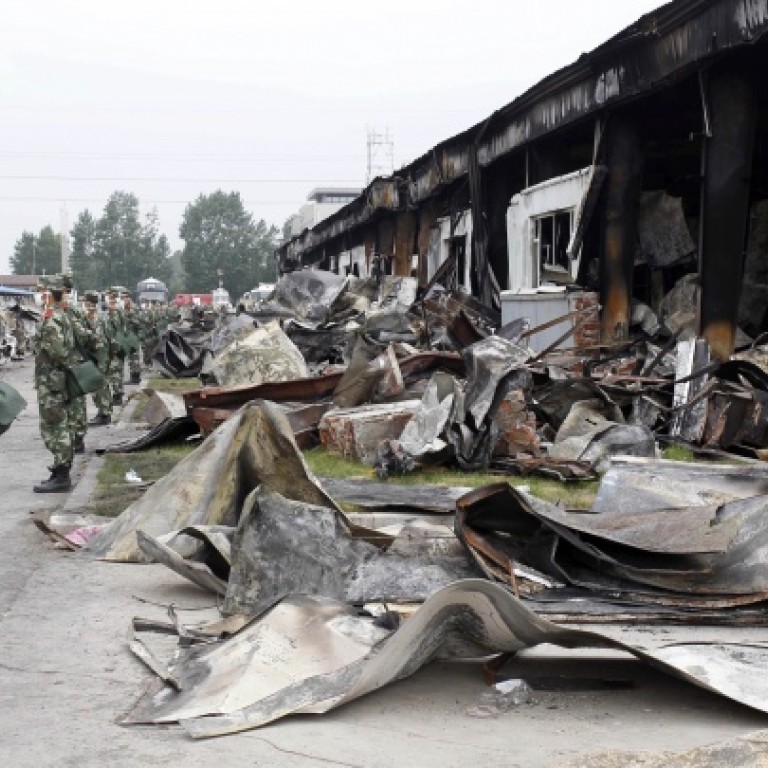
Make tragedy a turning point
Not in living memory has the mainland experienced a factory fire as deadly as that early Monday in a poultry processing plant in the Jilin town of Mishazi. The scores of casualties remind of the blaze at a toy factory in Shenzhen 20 years ago that killed 87 migrant workers. But tragedies are supposed to teach lessons and it is clear from the tens of thousands of lesser such incidents each year that for owners and managers, safety continues to be a lower priority than profits. Until that mindset changes, there will be no let up to the senseless loss of innocent lives.
The toll at the Jilin Baoyuanfeng Poultry Company's plant is certain to rise. More than 300 workers were on duty when three explosions, believed to have been caused by a leak of the cooling gas ammonia, occurred. The intensity of the fire and the plant's cramped corridors and narrow, blocked and locked exits made the escape of so many at the same time impossible. Again, there is a wringing of hands and questions being asked as to why safety measures were not followed.
It is not as if there has been insufficient warning or there are a lack of laws, rules and regulations. In 2011, 125,400 industrial accidents caused 1,100 deaths. Jilin experienced two devastating fires in recent days: Two men are missing and two others were seriously hurt at an oil refinery at Dalian and a blaze that tore through a farm in Heilongjiang affected 78 buildings and 47,000 tonnes of grain. Accidents are sometimes not preventable, but the nature and scale are most of the time avoidable. There are, after all, thousands of workplace safety measures that require regular inspections and training.
They have had positive results: The number of workplace accidents has fallen 33 per cent over the past five years. As impressive as that seems, though, the achievement is made moot by a corresponding 8 per cent increase in the incidence of fires at agricultural production plants. Rules are widely flouted in the competitive sector in the rush for contracts and profits. Buildings are not constructed with health and safety in mind, nor are rules enforced as strictly in small cities and towns.
China is powering towards becoming a developed economy, but as the latest tragedy proves, workplace safety continues to take a back seat to growth. The government has made great strides in improving standards, yet there continue to be bosses and officials who think first of profits. The Jilin blaze has to be a turning point; workers must have 21st century protection.
